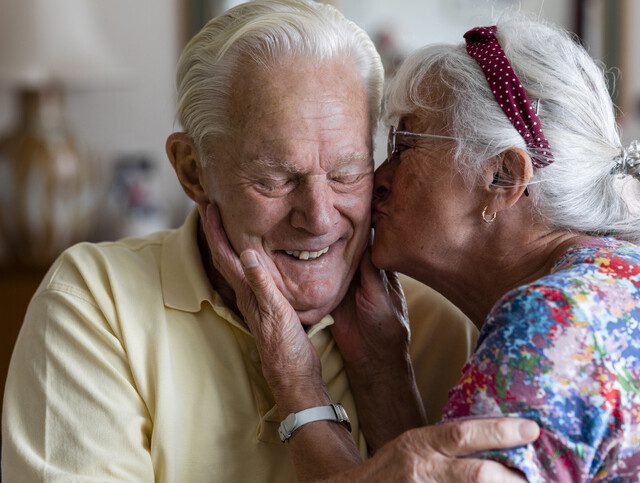The CDC currently estimates that 5.6 million people in the United States over the age of 65 suffer from Alzheimer’s or another type of dementia. It’s not uncommon for families to contend with the fraught question of when it’s time to move an aging parent or loved one from their home to a dedicated memory care community.
Read on to learn what memory care is, when it may be right for your loved one, and how to handle the moving process as a family.
What is Memory Care?
Memory care is a type of specialized care designed for older adults with Alzheimer’s and other types of dementia. The level of attention and service provided in a memory care community is greater than that of assisted living and is suited to meet the unique needs of individuals living with progressive-degenerative dementia.
As a continuing care retirement community, or CCRC, Village on the Green offers memory care focused on providing maximum freedom and independence while keeping your loved ones safe and secure, mitigating the risks of wandering or self-harm.
Signs You Should Consider Memory Care
If you suspect memory care could be on the horizon for a loved one here are some things to look out for:
- Increased difficulty performing daily tasks like organizing grocery lists or remembering the rules to a game they love
- New or worsening patterns of forgetfulness and confusion
- Confusing members of the family with other people
- More bumps and bruises, or other indications of imperiled physical safety
- Sudden change in behavior or communication patterns
- Incontinence
- Withdrawal from others
- Disinterest in things they once enjoyed
- Increased irritability
This list is not comprehensive, but if you notice something that seems off about someone you love, it is always worth having a more in depth conversation with them or other members of your family.
Making the Move to Memory Care
You’ve discussed the signs with your family and your loved one and have determined that a transition to memory care is the right move for everyone involved. So, what’s next?
Preparing for the Move
Preparing for the move can be one of the more difficult parts of the process. It can also be a struggle to navigate the complex emotions that surround such a big move. If your loved one forgets they have agreed to the move, have a script your family members can follow to deliver a unified and comforting message about the decision you’ve arrived at together.
In order to keep things as consistent as possible, appoint a single member of the family to handle most, if not all, communication with your loved one about the logistics of the move. Having one person in charge of the logistics will limit conflicting information and minimize confusion.
How to Handle Moving Day
Moving day can be a disorienting and stressful time for anyone. Help your loved one settle into their new space by coordinating with the professional team at your chosen community to identify activities and amenities they may enjoy. If possible, introduce some of these things to them yourself. Having your presence as they familiarize themselves with their new surroundings can make a major difference.
Spend quality time with your loved one in their new memory care suite. This lets them understand their new space more easily and gives them reassurance that you aren’t just dropping them off and heading home.
As much as possible, aim to handle the day with compassion and patience — for them and yourself. Moving someone you love into memory care can be an emotional time. Give yourself grace to feel whatever comes up during the moving process, and offer a listening ear and a comforting hand for any similar feelings your loved ones might experience.
After the Move
While the move itself can feel like the heaviest lift, the weeks and months following the move are important as well. Plan future visits within the first couple of months to help establish a sense of normalcy related with your coming and going, and to remind your loved one that you’re there for them.
Memory care plans often involve more than just the resident and the healthcare team working with your loved one. You may want to be involved to help create a plan that fully honors their individuality and desire for independence while addressing their increased needs.
Be prepared for challenges. Dementia is hard. There’s really no getting around the fact that memory-related conditions are some of the most heartbreaking to watch someone you love go through. Even with the best of care, challenges in your loved one’s health and well-being will arise. Work with your community’s professionals to navigate these challenges together.
Explore Memory Care Options at Village on the Green
Each memory care community is different, but Village on the Green is dedicated to providing quality, compassionate care for your family’s needs. Our state of the art community offers specialized programming and valuable resources that work alongside our customized individual care plans to help your loved ones find meaning and joy in each day.
To learn more about what memory care at Village on the Green can do for your family, schedule a tour today.


